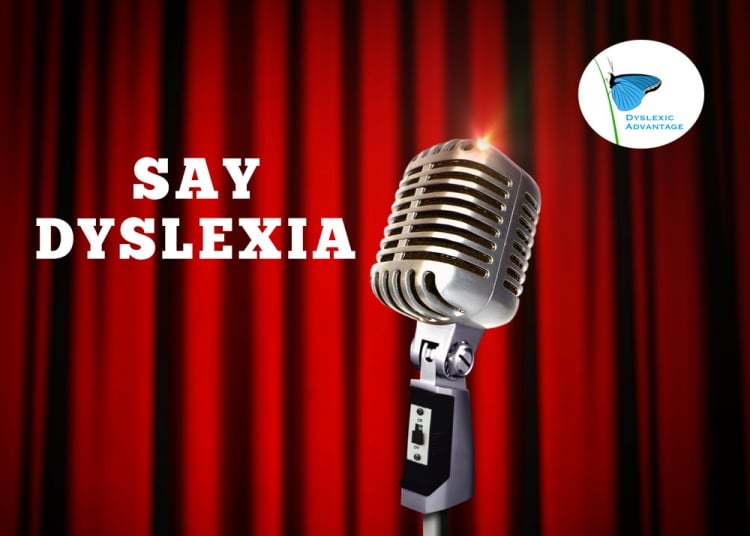From the first edition of our book, The Dyslexic Advantage: "Early in school most—but not all—dyslexic children will show obvious struggles with reading and spelling. (A few, whom we’ve elsewhere called stealth dyslexics, have problems so subtle or “stealthy” that...
Stealth or Compensated Dyslexia [Premium]
There are a variety of terms used to described individuals with dyslexia who have challenges decoding text but then evolve over time to those who can read silently with good compensation. These people can succeed in the highest levels of education and work, but still have non-reading-related challenges (for instance spelling and writing fluency, tip of the tongue word retrieval issues) that persist. We coined the term stealth dyslexia some years ago because in this setting dyslexia could fly under the radar of detection, but others have used terms like compensated or resilient dyslexia to characterize many of these individuals. IS THIS THE GOAL? If you have a student who is still in the throes of learning effective decoding, getting to the the compensated or […]
The Way of Resilient Readers: Vocabulary and Morphology [Premium]
There are many informal terms that have come into literature to describe “compensated” dyslexic readers. We coined the term stealth dyslexia to call attention to their pattern on psychometric tests; stealth dyslexics often had this compensated reading pattern where silent reading comprehension was much better than single word reading accuracy or oral fluency. It’s common to see a pattern of resilient reading by dyslexic students in college or those who have been successfully remediated. Dr. Fumiko Hoeft has found that activity in the left prefrontal region seems to predict reading resilience in children (see below). Interestingly, a study by Farris et al. in the Annals of Dyslexia this year has found that strong vocabulary predicted reading resilience among college students with dyslexia. From […]
How Dyslexia Changes at Different Ages [Premium]
With all of the advances in our understanding of early intervention, dyslexia in older students and young adults often gets short shrift. The paper by Dr. Kathleen Niesen and colleagues has some interesting findings that have important points for identification, accommodations, and understanding of both the challenges and strengths of adolescents and young adults with dyslexia. Importantly, the authors made this point: “…if dyslexia was not diagnosed earlier in schooling, young adults do not qualify for accommodations even if as adolescents and adults they meet research criteria for dyslexia on evidence-based assessment. Such assessment practices do not seem fair or sensible or consistent with the spirit of the Americas for Disabilities legislation.” The point made was that dyslexia missed in the early grades usually meant dyslexia […]
The Moral Harm of Dyslexia Unawareness
Primum non nocere. – Latin Saying (First, do no harm) The Latin Saying Primum non-nocere may not have originated with Hippocrates, however the advice is also like a laser beam focused on the greatest harm that comes from dyslexia unawareness. A few days ago, a colleague sent me an article where Avengers star (Bruce Banner / the Hulk) Mark Ruffalo shared “The nun who was teaching me early on to read was very cruel because of my dyslexia…these teachings of Christ revolved around love and social justice, and then what I was seeing in that community, the way they did business, the way nuns treated children — all of that seemed to be at odds with each other. I lost my faith in that institution when I was very […]
Breaking Research : Dyslexia in Adolescents and Adults [Premium]
An important paper was published this month from the University of Washington, entitled “Evidence-Based Reading and Writing Assessment for Dyslexia in Adolescents and Young Adults.” The paper is especially important guiding testing professionals who assess teens and adults for dyslexia or see gifted or twice-exceptional students. This paper also takes a more systematic look at the roles of individual factors like working memory and executive function on dyslexia and reading and spelling performance. The data will be helpful in targeting educational interventions and can also guide requests for testing accommodations. There are interesting observations too in that paper that will help with characterizing the strengths that occur among adolescent and adult dyslexics, with implications for twice-exceptional or gifted students with dyslexia. In several areas, adolescent / adult […]
Dyslexia and Accommodations – ADA Guidelines for School and Work
The US Department of Justice just released final regulations regarding the implementation of the American for Disabilities Act. "These rules clarify and refine issues that have arisen over the past 20 years and contain new and updated requirements." Direct link to the...
Dyslexic Advantage Premium – Issue 11 Organizing Creativity [Premium]
Premium Issue 11 October 29, 2016 Organizing Creativity, Stealth Dyslexia, Dyslexia and Self Image, Memorizing for School, What Worked for 2E Gifted Dyslexics, Art Therapy for Dysgraphia, Hands-On Math for Fractions, More Interactive Reading Strategies, Mastering Foreign Languages and More This issue has memory strategies that seem to be helpful for a majority of dyslexic folk – whether it’s history facts, science vocabulary, or foreign languages. Subscriptions support Dyslexic Advantage. [/wcm_restrict]
Why It’s Important to Say Dyslexia But Also Support Its Strengths
What is Dyslexia? Dyslexia is a brain-based learning difference with a strong genetic basis. It characterized by unexpected difficulties in fluent reading and specific patterns of difficulty with writing, spelling, and sometimes math as well as strengths in...
Dyslexia and Speaking Difficulties in Children [Premium]
“Two years after starting school, 1/3 of children who had experienced articulatory problems or whose language acquisition had been delayed were significantly behind in reading and spelling. By contrast, only one of twenty children in the control situation were behind.” – Dr. Marcel Just, Dyslexia Characteristics and Causes Although dyslexia is quite common (up to 15-20% of the population), many equate it as being a problem of reading, whereas there are a wide range of differences (as a group) between dyslexic and non-dyslexic individuals – including speech difficulties but also strengths. Speaking difficulties may be one of the earliest ‘signs’ of dyslexia including, but not limited to late talking, tendency to stutter / cluttering (rapid speech, irregular rate, rhythm, and sequence), word retrieval difficulties, mispronunciation […]


![Stealth or Compensated Dyslexia [Premium]](https://www.dyslexicadvantage.org/wp-content/uploads/2023/02/Stealth-or-Compensated-Dyslexia-1-400x250.jpg)
![The Way of Resilient Readers: Vocabulary and Morphology [Premium]](https://www.dyslexicadvantage.org/wp-content/uploads/2021/08/Morphology-400x250.jpg)

![Breaking Research : Dyslexia in Adolescents and Adults [Premium]](https://www.dyslexicadvantage.org/wp-content/uploads/2016/02/Screen-Shot-2019-10-08-at-4.23.50-PM.jpg)

![Dyslexic Advantage Premium – Issue 11 Organizing Creativity [Premium]](https://www.dyslexicadvantage.org/wp-content/uploads/2016/10/Screen-Shot-2016-10-29-at-4.27.33-PM.jpg)

![Dyslexia and Speaking Difficulties in Children [Premium]](https://www.dyslexicadvantage.org/wp-content/uploads/2016/03/quiet-boy-our-shutterstock.jpg)













